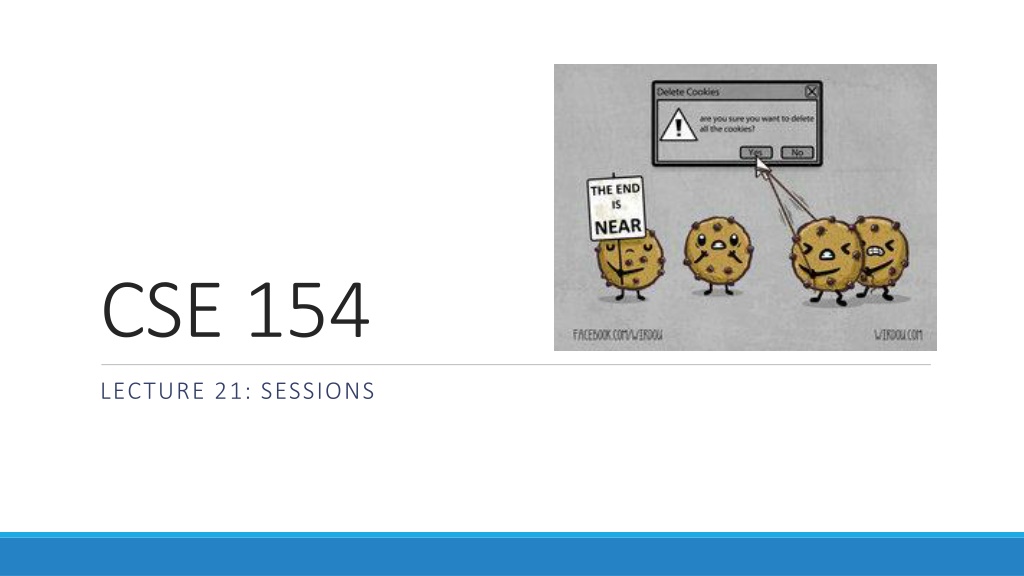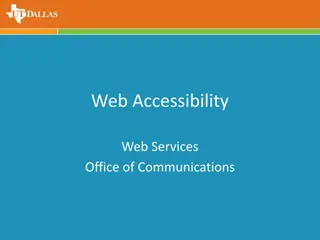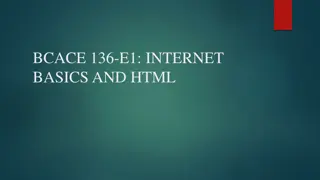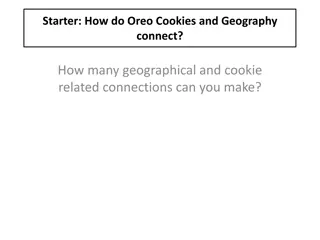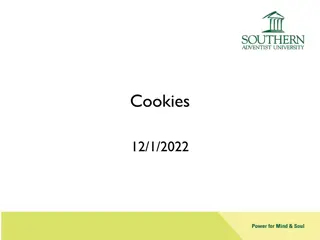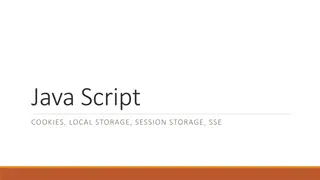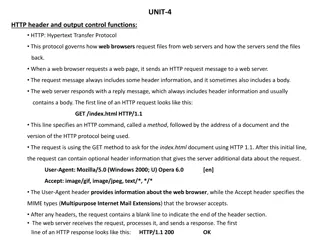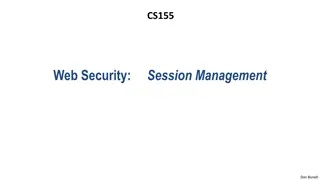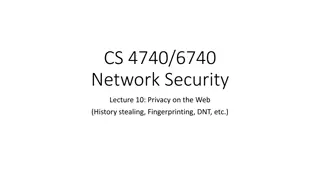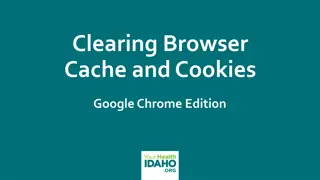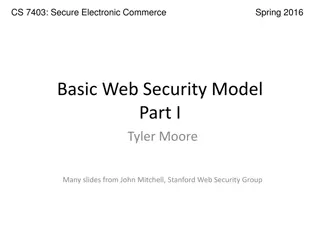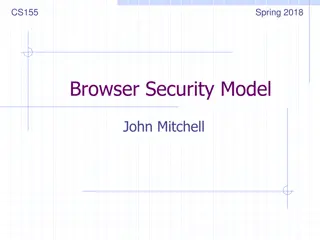Understanding Sessions and Cookies in Web Development
Sessions and cookies play a vital role in web development. Sessions represent a series of HTTP requests between a web browser and server, while cookies store data on the client side. PHP allows for managing sessions and cookies effectively, including setting, expiring, and deleting them. Sessions are established through client-server communication, enabling data retrieval for each client's session. Understanding the differences in duration, data storage, and security between sessions and cookies is crucial for web developers.
Download Presentation

Please find below an Image/Link to download the presentation.
The content on the website is provided AS IS for your information and personal use only. It may not be sold, licensed, or shared on other websites without obtaining consent from the author. Download presentation by click this link. If you encounter any issues during the download, it is possible that the publisher has removed the file from their server.
E N D
Presentation Transcript
CSE 154 LECTURE 21: SESSIONS
Expiration / persistent cookies setcookie("name", "value", expiration); PHP $expireTime = time() + 60*60*24*7; # 1 week from now setcookie("CouponNumber", "389752", $expireTime); setcookie("CouponValue", "100.00", $expireTime); PHP to set a persistent cookie, pass a third parameter for when it should expire indicated as an integer representing a number of seconds, often relative to current timestamp if no expiration passed, cookie is a session cookie; expires when browser is closed time function returns the current time in seconds date function can convert a time in seconds to a readable date
Deleting a cookie setcookie("name", FALSE); PHP setcookie("CouponNumber", FALSE); PHP setting the cookie to FALSE erases it you can also set the cookie but with an expiration that is before the present time: setcookie("count", 42, time() - 1); PHP remember that the cookie will also be deleted automatically when it expires, or can be deleted manually by the user by clearing their browser cookies
What is a session? session: an abstract concept to represent a series of HTTP requests and responses between a specific Web browser and server HTTP doesn't support the notion of a session, but PHP does sessions vs. cookies: a cookie is data stored on the client a session's data is stored on the server (only 1 session per client) sessions are often built on top of cookies: the only data the client stores is a cookie holding a unique session ID on each page request, the client sends its session ID cookie, and the server uses this to find and retrieve the client's session data
How sessions are established client's browser makes an initial request to the server server notes client's IP address/browser, stores some local session data, and sends a session ID back to client (as a cookie) client sends that same session ID (cookie) back to server on future requests server uses session ID cookie to retrieve its data for the client's session later (like a ticket given at a coat-check room)
Cookies vs. sessions duration: sessions live on until the user logs out or closes the browser; cookies can live that long, or until a given fixed timeout (persistent) data storage location: sessions store data on the server (other than a session ID cookie); cookies store data on the user's browser security: sessions are hard for malicious users to tamper with or remove; cookies are easy privacy: sessions protect private information from being seen by other users of your computer; cookies do not
Implementing user logins many sites have the ability to create accounts and log in users most apps have a database of user accounts when you try to log in, your name/pw are compared to those in the database
Sessions in PHP: session_start session_start(); PHP session_start signifies your script wants a session with the user must be called at the top of your script, before any HTML output is produced when you call session_start: if the server hasn't seen this user before, a new session is created otherwise, existing session data is loaded into $_SESSION associative array you can store data in $_SESSION and retrieve it on future pages complete list of PHP session functions
Accessing session data $_SESSION["name"] = value; # store session data $variable = $_SESSION["name"]; # read session data if (isset($_SESSION["name"])) { # check for session data PHP if (isset($_SESSION["points"])) { $points = $_SESSION["points"]; print("You've earned $points points.\n"); } else { $_SESSION["points"] = 0; # default } PHP the $_SESSION associative array reads/stores all session data use isset function to see whether a given value is in the session
Common session bugs session_start doesn't just begin a session; it also reloads any existing session for this user. So it must be called in every page that uses your session data: # the user has a session from a previous page print $_SESSION["name"]; # undefined session_start(); print $_SESSION["name"]; # joe PHP previous sessions will linger unless you destroy them and regenerate the user's session ID: session_destroy(); session_regenerate_id(TRUE); session_start(); PHP
Ending a session session_destroy(); PHP session_destroy ends your current session potential problem: if you call session_start again later, it sometimes reuses the same session ID/data you used before if you may want to start a completely new empty session later, it is best to flush out the old one: session_destroy(); session_regenerate_id(TRUE); # flushes out session #ID number session_start(); PHP
Session timeout because HTTP is stateless, it is hard for the server to know when a user has finished a session ideally, user explicitly logs out, but many users don't client deletes session cookies when browser closes server automatically cleans up old sessions after a period of time old session data consumes resources and may present a security risk adjustable in PHP server settings or with session_cache_expire function you can explicitly delete a session by calling session_destroy
